

New England's Mafia, known (particularly in Rhode Island) as The Office, includes two distinct metropolitan headquarters - Boston, Massachusetts, and Providence, Rhode Island. Its traditional rackets territory includes all of Rhode Island, eastern and central Massachusetts, eastern Connecticut, southern New Hampshire and southern coastal Maine. The Connecticut River has roughly represented the crime family's western boundary in Connecticut, Massachusetts and northern New England. However, Springfield, Massachusetts, just east of the river, has been a distant outpost of the New York-based Genovese Crime Family, and New Haven, Connecticut, west of the river, has had a substantial New England Mafia presence. At an early formative stage, the Boston crime family was a small cluster of gangs commanded by immigrants from Salemi, Sicily. From the late 1910s into the 1920s, these may have had overlapping membership with some Black Hand extortion gangs. The Providence wing developed from a robbery/burglary gang organized by the Morelli brothers. Mafiosi in New England have traditionally had close relationships with those in the New York City area. There has been an especially close historic relationship - including exchanges of members - between New England and the Profaci/Colombo Crime Family based in Brooklyn and Staten Island.
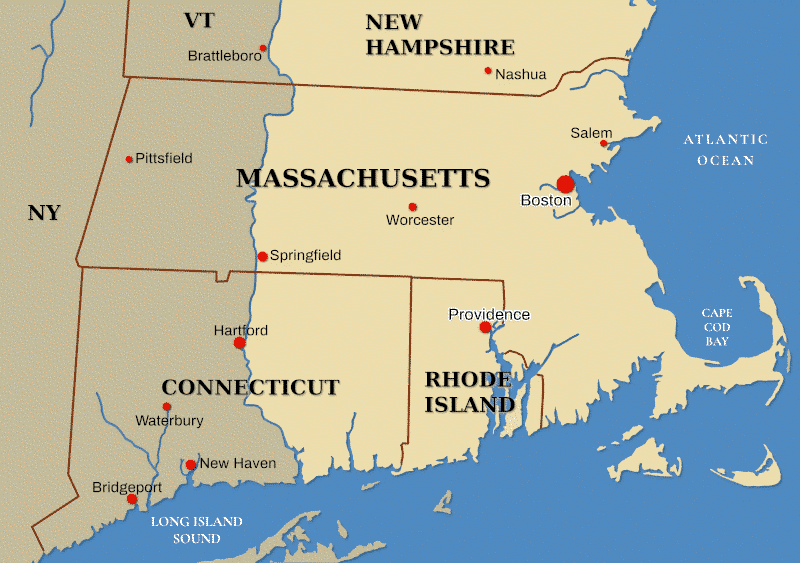
New England Crime Family's traditional territory
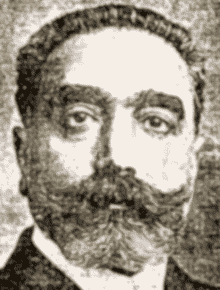
DiCola
1910s - Gaspare DiCola (Born April 9, 1866, in Termini Imerese, Sicily. Died Sept. 21, 1916, in Boston MA.) DiCola, native of a northern coastal municipality in Palermo province, may have been a Boston Mafia boss at the time he was gunned down by one or two unknown assailants. He was shot repeatedly on the evening of September 20, 1916, as he neared his home, 21 Fairbanks Street, in Brookline. He was rushed to Massachusetts General Hospital. Near death, DiCola told police he knew nothing about the gunman or gunmen, who escaped on foot. Police found it curious that DiCola refused to discuss the incident - they believed he knew more than he was telling - and speculation about a DiCola role in the local underworld resulted from his determined deathbed silence. DiCola reportedly established residence in the Boston area in the period 1888-1892. He established a produce importing business in the city, living and working for a time along Commercial Street (his early home was 493 Hanover, near the intersection with Commercial) adjacent to the busy North End waterfront. By 1910 he had moved his business a short distance to 46 Clinton Street and his home to 208 Hanover Street. The success of his importing venture earned him the nickname, "the Lemon King." Boston Mayor John Francis Fitzgerald (maternal grandfather of U.S. President John F. Kennedy) in 1911 appointed DiCola to the local Board of Children's Institutions, evidence of DiCola's political connections and of his commitment to charitable work. DiCola also served as president of the Boston Italian Red Cross Committee. While an underworld leadership role is far from certain, DiCola's murder coincided with the appointment of Gaspare Messina as Boston-area Mafia rappresentante and with the rise of local mafiosi from the inland Trapani province community of Salemi.
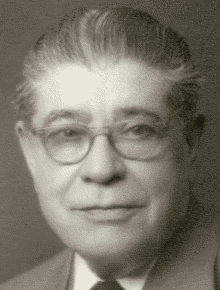
Messina
1916 - Gaspare Messina (Born Aug. 7, 1879, in Salemi Sicily. Died June 15, 1957, in Somerville MA.) Messina entered the United States through New York City late in 1905. He and his wife settled for a time in Brooklyn. By 1915, they relocated to Boston, where Messina soon became "rappresentante" of the local Sicilian underworld. Many historians equate "rappresentante" with the role of boss - and some crime figures may have served in both positions simultaneously - but "rappresentante" alone seems to indicate an individual who is a regional delegate to national Mafia conventions and/or the regional agent of the national Mafia boss of bosses. The abruptness of Messina's move and of his accession to power suggest that reigning boss of bosses Salvatore "Toto" D'Aquila, based in New York, was responsible for inserting Messina into the Boston underworld organization.
1920 - During the Prohibition Era, Gaspare Messina partnered with Frank Cucchiara and Paolo Pagnotta in the G. Messina & Co. wholesale grocery business of Prince Street. He moved his family to Somerville, Massachusetts, around 1926. In the late 1920s, he became president of the Neptune Oil Corporation. Messina temporarily served as boss of bosses over the American Mafia during the 1930-31 Castellammarese War. Evidence suggests he lived in New York City while serving in that capacity. The Boston Mafia was small and relatively weak under Messina.
Informer (October 2011): "Gaspare Messina and the Rise of the Mafia in Boston," by Richard N. Warner
1920 - Joe Lombardo (Born Sept. 1, 1895, in Salemi, Sicily. Died July 17, 1969, in Boston, Massaschusetts.) "Big Joe L" Lombardo held an ill-defined but long-term position of leadership in the New England Mafia. Lombardo entered the U.S. at New York in spring 1906. He spent some years in Brooklyn before moving to the Boston area. He resided in the communities north of Boston: Medford, Chelsea, Arlington and Everett. He was viewed as an early boss in the Boston region, serving as arbiter of disputes among the gangs of the Boston area and those in nearby New England regions. Lombardo, known as a North Side restaurateur, is believed to have been responsible for the December 1931 assassination of Frankie "Gustin" Wallace, leader of the powerful South Side Boston Irish mob known as the Gustin Gang, and aide Bernard "Dodo" Walsh. Lombardo was arrested for the murders in 1932 (along with Frank Cucchiara and Salvatore Congemi), but he was freed by the Suffolk County grand jury.
1924 - Some sources insist that Lombardo did not rank higher than underboss or consigliere within a Boston Mafia administration commanded by Philip Buccola. It is difficult to reconcile the apparently overlapping roles of Lombardo, Buccola and Messina (as well as a crime figure named Johnny Bruno) - all believed by some to have served as bosses - beginning in the mid-1920s. Following Prohibition, according to underworld informant Vincent Teresa, Lombardo led a panel of bosses, who met regularly at Pinetree Stables in Framingham, about twenty miles west of Boston. In later years, investigators noted that Lombardo seemed not to participate in underworld rackets but was treated with deference by regional crime figures.
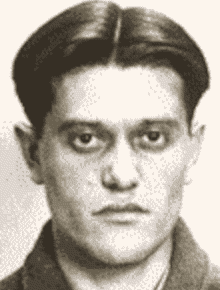
Morelli
1924 - Frank Morelli (Born Feb. 21, 1896, in Providence, Rhode Island. Died Aug. 10, 1965, in Providence, Rhode Island.) A somewhat hazy figure in organized crime histories (likely because the family's use of surname "Molarelli" into the Prohibition Era threw some historians off the trail), "Butsey" Morelli has been described as an immigrant who initially settled in Brooklyn, NY, or a Brooklyn-born son of immigrants who moved to Providence, Rhode Island, around the time of World War I. Both of these versions are inaccurate. Morelli was, in fact, born in Providence (local birth records indicate a birthdate of Feb. 21, 1896, while Social Security records point to one day later). One of Morelli's brothers was born in Italy, two were born in France and another was born in Brooklyn, before the family moved to Rhode Island. The Morelli/Molarelli family called Providence its home by 1895, long before World War I. Oldest brother Joseph "Statsie" Morelli formed his brothers and some youths from their neighborhood into a robbery gang in the years before Prohibition. Freight cars were a favorite target until federal authorities managed to secure convictions against Joe and Frank Morelli and several others and send them away for terms in federal prison. Some believe the Morelli brothers were responsible for the South Braintree, Massachusetts, robbery-murders for which Sacco and Vanzetti were convicted and executed. Frank Morelli was released from prison in February 1924 and set to organizing rackets around Providence. The early stages of this effort were bloody. Morelli was arrested for assault with a deadly weapon in May 1924 and was the victim of a stabbing in 1925. While never recognized as boss of the entire New England region, Morelli was respected for decades as the most influential leader of Providence organized crime.
Informer (October 2016): "On the trail of 'Butsey' Morelli," by Thomas Hunt
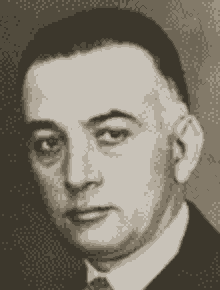
Buccola
1924 - Filippo Buccola (Born Aug. 6, 1886, in Palermo, Sicily. Died October 1987 in Italy.) Phil Buccola (also spelled Bruccola) moved from Palermo to the U.S. in 1920, initially settling in Brooklyn, where he had relatives on Sackett Street. He was likely a member of the Sicilian Mafia before crossing the Atlantic. Some believe he was called to the U.S. specifically to take control of a Sicilian gang in Boston, where he established residence in March 1921. Some out-of-date sources suggested that Buccola took over the leadership of the Boston Mafia upon the death of Gaspare Messina in 1924. However, Messina lived into middle of 1957 and is known to have served as American Mafia boss of bosses briefly around 1930. Buccola may reasonably be considered an East Side faction boss beginning in 1924. He worked as a produce dealer and as a manager of prizefighters. In this second occupation, he partnered for a time with New Yorker Gandolfo Curto, known by the alias Frank Marlow, who was murdered in 1929.
1931 - With regional consolidation of Mafia organizations imposed first by boss of bosses Salvatore Maranzano in spring 1931 and then by the representative Commission in autumn 1931, it appears likely that the Boston and Providence organizations were merged. Boston-based Buccola may have become the titular head of the combined crime family at this time.
1947 - According to Mafia turncoat Vincent Teresa (whose recollections were not always reliable), regional Mafia statesman Joe Lombardo pushed Frank Morelli into retirement in Providence and endorsed Filippo Buccola as leader of a newly combined Boston-Providence crime family. Lombardo remained a highly influential figure in the Boston-area Mafia.
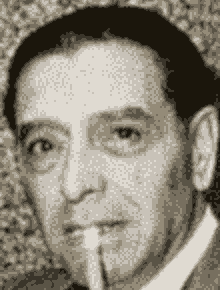
R.L.S. Patriarca
1954 - Raymond Loreto Salvatore Patriarca (Born March 17, 1908, in Worcester, Massachusetts. Died July 11, 1984, in Providence, Rhode Island.) Buccola did a fair amount of transatlantic traveling for decades and retired to Sicily in 1954. Control of the New England Crime Family reportedly was offered back to Joe Lombardo, but he could not be lured out of retirement. (FBI speculated that Lombardo consented for a time to serve as consigliere.) Instead, the organization was turned over to Patriarca, who was for a time regarded merely as "acting boss" beneath the absent boss Buccola. The Massachusetts-born Patriarca had a long criminal history, strong underworld connections in Worcester, Massachusetts, and Providence, Rhode Island, and had graduated to the position of Providence-based capodecina within the Buccola mob. Upon becoming New England boss, he centered his operations in Providence and closely allied himself with the relatively small Profaci-Colombo family in New York. Henry Tameleo (July 12, 1901, to August 1985), who transferred into New England from New York City's Bonanno family, served as his Providence-based underboss. Boston affairs were believed to be managed by Anthony Santaniello until about 1960.
1956 - Patriarca entered the coin-operated vending machine business. The Coin-O-Matic business, which distributed cigarette dispensing machines, became the headquarters (the "Office") of the crime family. In the later 1950s, Patriarca consolidated his control of gambling operations in Rhode Island and eastern Massachusetts and became a strong influence in the Laborers Union in Providence.
1959 - In February of 1959, Patriarca testified before the U.S. Senate McClellan Committee. He told of starting his vending machine business with money inherited from his mother. He acknowledged knowing Frank "Butsey" Morello for forty years or longer and said he was familiar with Apalachin-attendee Frank Cucchiara, but knew him only as a cheese merchant. Later in the year, sources told the FBI that Patriarca was installed as a member of the national Mafia Commission.
1960 - Leadership responsibilities were shuffled. Patriarca was momentarily sidelined by a heart attack. Boston underboss Santaniello died of natural causes. Larry Baione/Zannino, regarded by federal investigators as "unstable," briefly replaced Santaniello until he was sentenced to state prison for extortion. Gennaro Angiulo soon became Patriarca's top man in Boston. Around this time, Patriarca was called upon to help mediate a dispute between Brooklyn's Gallo gang and their boss Joseph Profaci.
1963 - The FBI installed electronic surveillance in Patriarca's Coin-O-Matic office in Providence and obtained a wealth of information about Patriarca Crime Family operations and its relationships with other Mafia organizations until use of the device is discontinued in the summer of 1965. The surveillance was revealed by 1967 and damaged Patriarca's reputation to the point that some believed he would be forced to resign.
1968 - Patriarca was convicted of conspiring in the 1966 Providence murder of gambler Willie Marfeo. Also convicted in the same case were Henry Tameleo of Providence and Ronald Cassesso of Boston. Patriarca was sentenced to five years in prison and a $10,000 fine. While awaiting news of his appeal (unsuccessful), Patriarca was brought to trial (later acquitted) for loansharking. He began his sentence at Atlanta Federal Prison in March 1969. Additional charges related to his gambling organization were lodged in 1971.
Informer (October 2011): "Patriarca becomes 'the Man,'" by Thomas Hunt
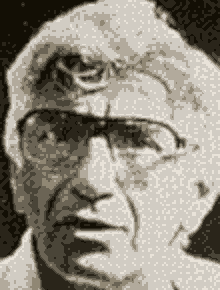
Angiulo
1969 - Gennaro J. Angiulo (Born March 20, 1919, in Boston. Died Aug. 29, 2009, in Boston.) The Boston-born son of immigrants from the Puglia region of Italy, Angiulo With Patriarca imprisoned and his rackets exposed through the federal wiretaps, Angiulo - who had worked gambling rackets as a mob affiliate during the 1950s and early 1960s - rose to run the rackets in the Boston wing of the New England family. While never a part of the Providence inner circle, his money-making performance won him the job as underboss for Boston and Worcester, Massachusetts, from about 1963 through Patriarca's death in 1984. Federal authorities expected for a time that Angiulo would succeed Patriarca and that crime family control would be shifted back to Boston from Providence. That did not occur. (Angiulo was entirely removed from the organization by a federal prison stay that consumed about two decades. He was released at age eighty-eight, two years before his death.)
1981 - Federal agents planted listening devices in two Angiulo-frequented locations, a headquarters on Prince Street and a social club on North Margin Street. These bugs picked up Angiulo discussions about rackets and enforcement over a three-month period.
1983 - Illustrating the strength of his Boston connections, when Angiulo was arrested by the FBI at Francesco's Restaurant in the North End, he famously remarked, "I'll be back before my pork chops get cold."
MobNews: Former NE underboss to be paroled (July 7, 2007)
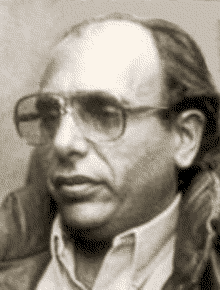
'Junior' Patriarca
1984 - Raymond Joseph Patriarca (Born. Died.) Perhaps due to his lack of influence in the main "Office" territory in Rhode Island, Angiulo was not considered for the boss position upon the July 7, 1984, heart attack death of Raymond L.S. Patriarca. The Providence wing appears to have thrown its support behind Patriarca's son, Raymond Joseph Patriarca. William "Wild Guy" Grasso, a former member of the Colombo Crime Family in New York, became regional underboss and was considered to be the true power behind the mob throne. Angiulo remained nominally in control of Boston rackets until sent off to a long sentence in federal prison upon a 1986 racketeering conviction.
1989 - Support for the younger Patriarca as boss was not unanimous, and FBI agents secretly helped to undermine the regime by convincing members of unhappy factions in Massachusetts and Connecticut that Raymond J. Patriarca was planning to have them eliminated. Facing what they believed to be a "kill or be killed" situation, those members rose up against the Patriarca administration. On the morning of June 16, 1989, "Cadillac Frank" Salemme, rapidly rising within the Boston wing of Patriarca's organization, was seriously wounded in a shooting in a Saugus, Massachusetts, parking lot. That afternoon, the remains of "Wild Guy" Grasso were found partly submerged in the Connecticut River outside Hartford, Connecticut. Only years later did the FBI's role in instigating the killings - partly through the use of informant Angelo "Sonny" Mercurio - come to light.
Mercurio did additional damage to the New England Mafia later in 1989. He assisted the FBI in eavesdropping on an October 29, 1989, Mafia induction ceremony in Medford, Massachusetts. Raymond J. Patriarca personally presided over the ceremony. During the event, Patriarca revealed that he had assigned the top spot over the Boston rackets to Joseph Russo. Russo then performed the induction of the new members. News that agents had listened in on the ceremony disgraced Patriarca and forced him from office. The only top crime family leader not in attendance at Medford, Nicholas Bianco, became the next boss.
Writers of Wrongs: Top New England mobsters targeted (June 16, 2018)
MobNews: Informant Mercurio dies at 70 (Feb. 13, 2007)
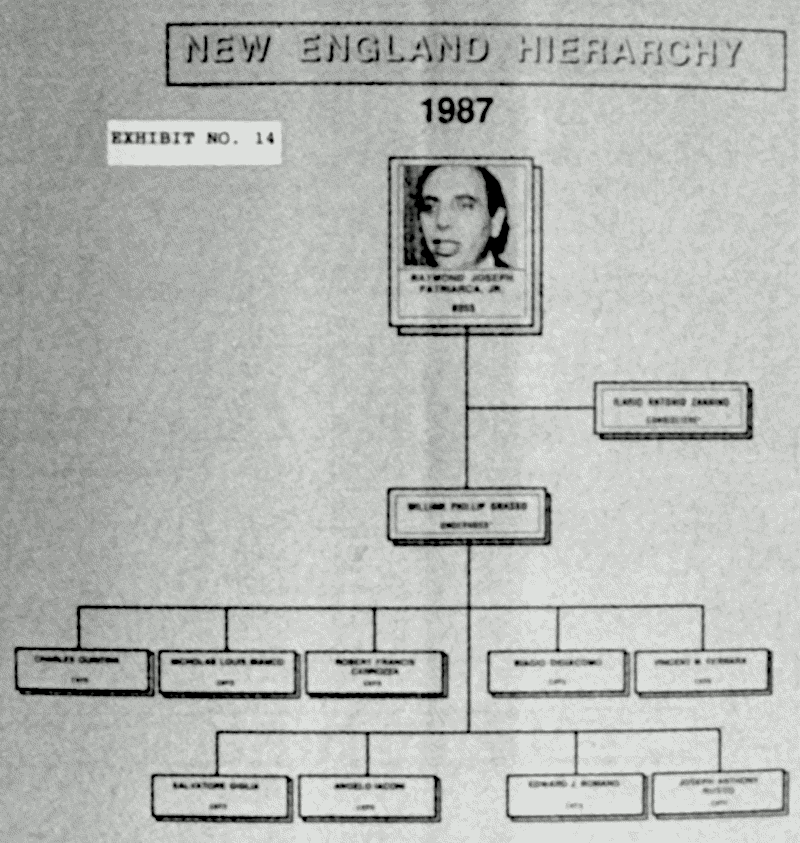
Senate investigators assembled a picture of the New England mob hierarchy in 1987
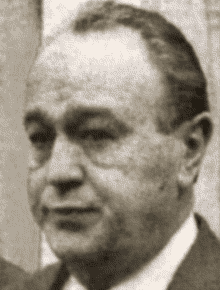
Bianco
1989 - Nicholas Bianco (Born March 21, 1932, in Providence, Rhode Island. Died Nov. 14, 1994, in federal prison, Springfield, Missouri.) Bianco was born in Providence to parents who emigrated from the southeastern Italian region of Puglia. He grew up in the rackets under Frank Morelli before spending some time in association with the Gallo wing of the Profaci Crime Family of Brooklyn, New York. He returned to Rhode Island to become a Mafia member under Patriarca. He served in the mid-1960s as a mediator in the Brooklyn organization's feud with its Gallo wing. For a time in 1970-71, he was an aide to Brooklyn boss Joseph Colombo. He then returned to Providence to help manage underworld affairs while Patriarca was in prison. Bianco rose to New England leadership in the power vaccuum following the Grasso murder and the exposure of the October 1989 induction ceremony in Medford (Bianco was not present for the ceremony).
1991 - Bianco and seven underlings were convicted of a long list of federal racketeering offenses in the summer of 1991. Several of his codefendants were convicted of conspiring in the 1989 murder of underboss William Grasso. Much of the evidence against Bianco was obtained through a listening device planted in the Cadillac of East Harford mobster Louis Failla. Bianco was sentenced to eleven and a half years in prison and began his sentence near the end of the year. While incarcerated, he was found to be suffering with ALS. He died in federal prison on Nov. 14, 1994, at age sixty-two.
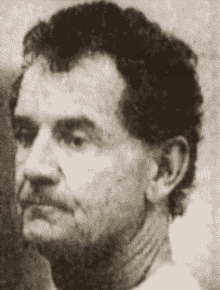
Salemme
1991 - Francis Patrick Salemme (Born August 18, 1933, in Boston.) "Cadillac Frank" Salemme, who nearly lost his life in the short-lived rebellion against the Raymond J. Patriarca regime, moved into the boss position during Nicholas Bianco's imprisonment. His accession marked the long anticipated return of crime family rule from Providence to Boston. Salemme was well known to the authorities for his vanishing acts. He disappeared for several years when sought in connection with a 1968 car-bombing and again when sought for the 1993 murder of a night club manager who was believed to be assisting federal investigators. Salemme's reign was fairly brief and marked by friction between crime family factions.
1995 - Salemme was found and arrested in West Palm Beach, Florida, in August of 1995. He was charged with racketeering, extortion and money laundering. At about this time, Louis G. Manocchio (known as "Baby Shanks" or "Baby Shacks"), a Rhode Island restaurateur, moved into the position of New England boss. Salemme was sentenced to prison following a racketeering conviction.
2018 - Salemme, then eighty-four, and codefendant Paul Weadick were convicted of the 1993 killing of (potential) government witness Steven DiSarro. DiSarro's remains were not discovered until 2016. Both Salemme and Weadick were given life prison sentences.
Writers of Wrongs: Top New England mobsters targeted (June 16, 2018)
Writers of Wrongs: Ex-boss Salemme, 84, convicted of murder (June 23, 2018)